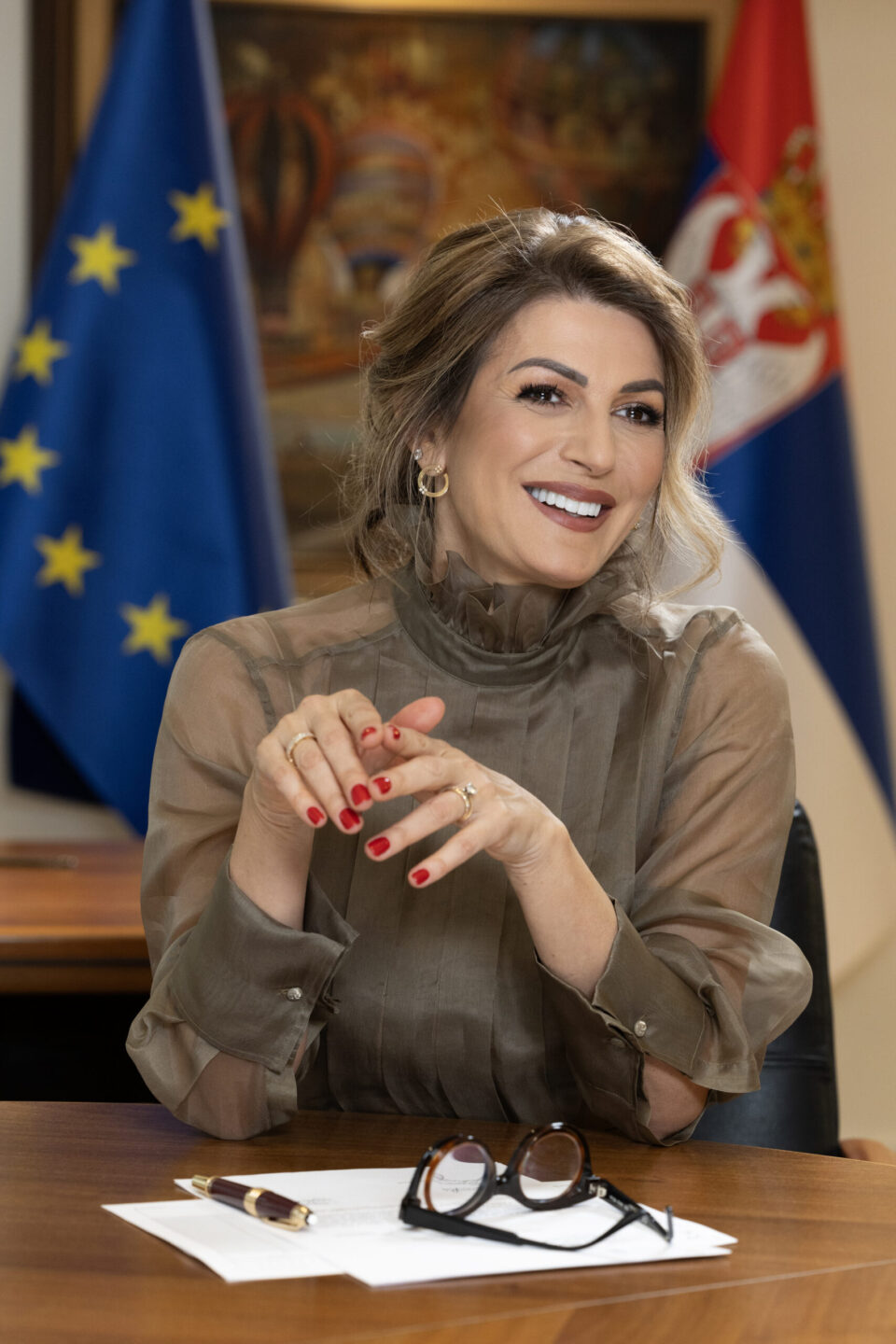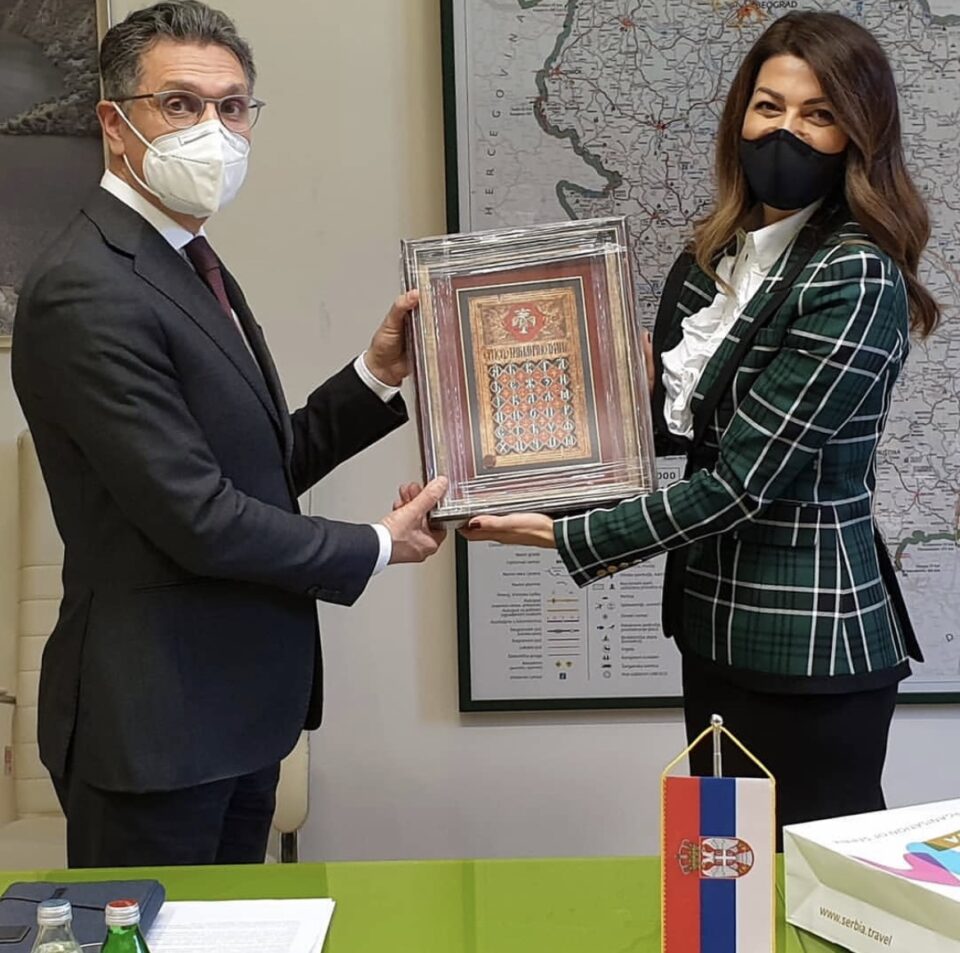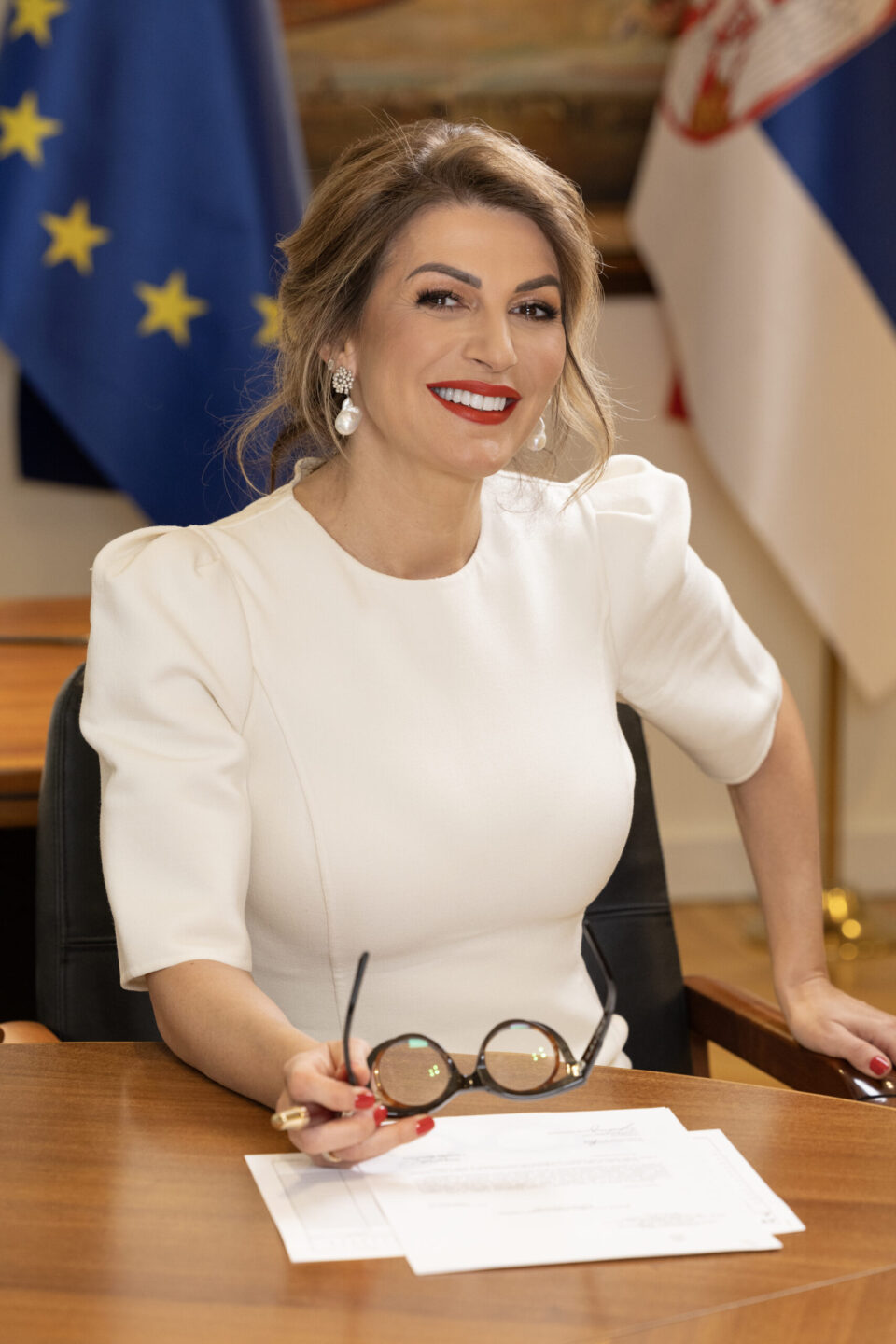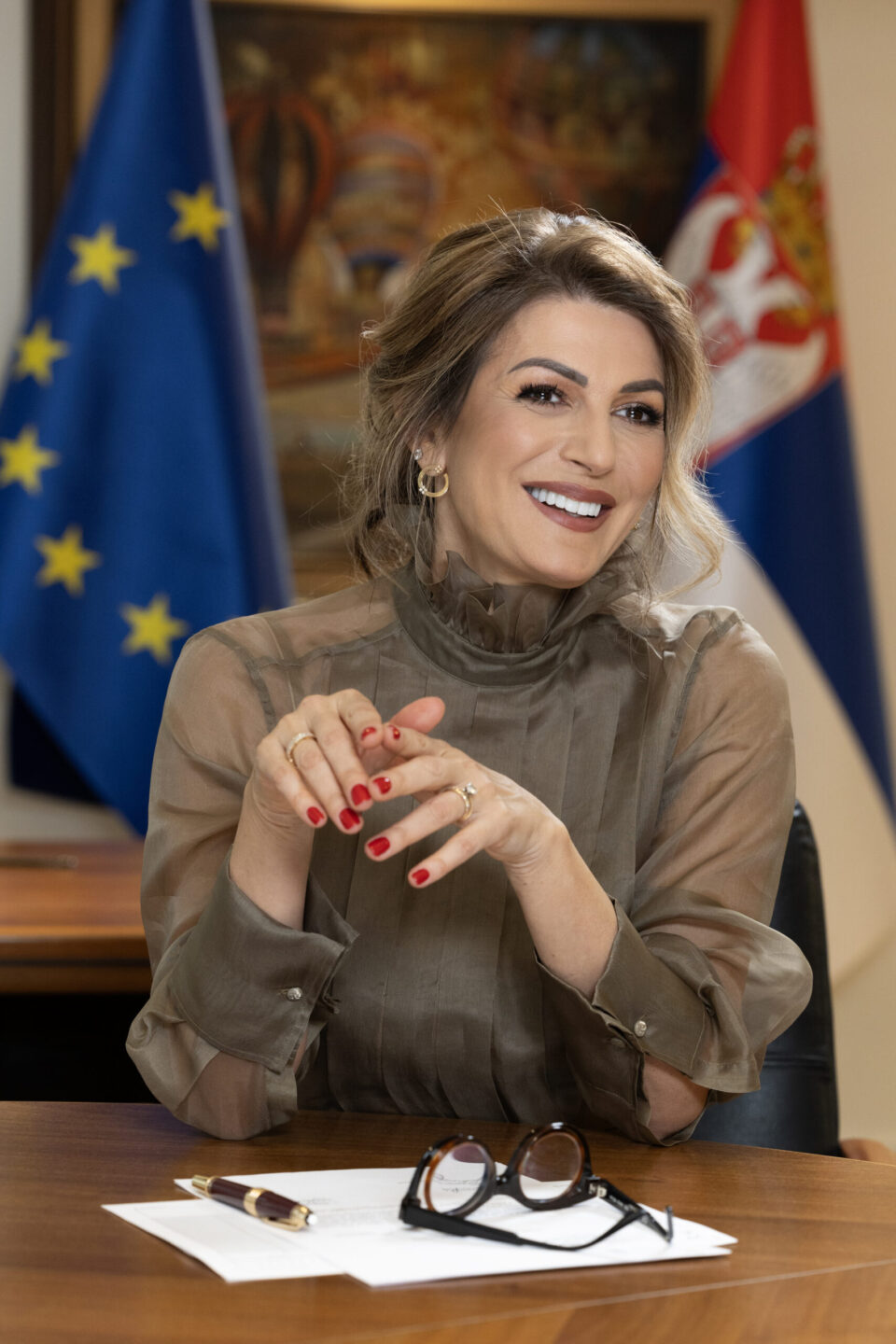Bilateral relations have been excellent for decades, while the economies of the two countries are complementary

International cooperation between Serbia and Morocco is characterized by mutual respect, friendship and mutual desire to further develop the bilateral relations. We spoke with Tatjana Matić, Director of the Republic of Serbia’s Development Fund, about opportunities for further cooperation, the Serbian-Moroccan tourism trade and launching direct flights between the two countries.
As Minister of Tourism and Telecommunications in the previous government, you had excellent cooperation with your Moroccan counterparts and with the Embassy of the Kingdom of Morocco in Belgrade. How would you rate this collaboration?
Relations between Morocco and Serbia are characterized by deep respect. The fact that in 2022, we celebrated 65 years of diplomatic relations speaks volumes about the strength of our diplomatic and economic ties. The Kingdom of Morocco’s political support about the most sensitive issues for our country has never been absent and the Republic of Serbia appreciates Morocco’s principles and consistency. Both from the position of minister, but also now from the position of director of the Development Fund, I am working on boosting the existing cooperation, first and foremost, the economic one. Bilateral relations have been excellent for decades, while the economies of the two countries are complementary and should encourage business communities to explore and exploit the huge potential and opportunity for trade and investments. The Ambassador of the Kingdom of Morocco in Serbia, H.E. Mr. Mohamed Amin Belhaj, has been a sincere friend of Serbia for many years and has been conscientiously and dedicatedly working on deepening the connection between our two countries.
What are the results of the work done by the Joint Commission for Economic, Trade, Scientific and Technical Cooperation between Serbia and Morocco, of which you were the vice president for a certain amount of time?
The Joint Commission has been working on developing the economic potential of our two countries, which has not been fully utilized. The Commission contributed to the formation of the Council of Businesspeople from the two countries, the signing of three economy-related agreements and defence, science and education agreements. Furthermore, the Commission contributed to Morocco becoming our bridge to the West African market.
It is a well-known fact that Belgrade used to be one of the most famous European capitals for African citizens
How would you rate the Serbian-Moroccan tourism trade?
Cooperation in tourism is very important for both our countries. It is a well-known fact that Belgrade used to be one of the most famous European capitals for African citizens. Our capital has been a second home for many students from the African continent, with strong private and business ties created over the years. However, the fact remains that this continuity has been broken, partly because of the wars in the Balkans. I am confident that many people remember that former relationship and I believe that we can easily fully utilize the tourism potential so that Morocco becomes one of the main tourist destinations for Serbs on the African continent and vice versa.

Is the launch of a regular flight between the two countries justified and how would it help increase tourist movements in both directions, especially from Morocco to Serbia, since it seems that Serbia as a tourist destination is not that appealing to Moroccans?
The launch of direct flights between Serbia and Morocco is certainly a step forward that will facilitate travel because in today’s world, migration happens daily and people travel so much for work, but also privately. This direct flight is certainly something that would improve the tourist offer, an opportunity for Moroccans to see the Balkans, but it is also an excellent opportunity for our people to get to know the magical and mystical Africa. The launch of the direct flight, which we have been working on diligently in the previous period, is also one of the steps towards boosting the bilateral relations in numerous other segments. Now that Belgrade has won its candidacy to host Expo 2027, the direct flight will facilitate better representation of Morocco in all fields.
Today, you are the director of the Development Fund. Do you still maintain good relations with the Moroccan Embassy?
Of course! Close cooperation with Morocco has great potential, especially in economy and trade, especially in agriculture and the automotive industry. Morocco can benefit from the expertise of Serbian companies and institutes in biotechnology since Belgrade is considered one of the world’s leading centres in this field.
Morocco was the first African and Arab country to develop its green hydrogen roadmap
Are you working on any joint projects with Morocco and how can Morocco’s experience help with Serbia’s development, particularly in the use of renewable energy sources and sustainable development?
The Fund’s activities are now somewhat more focused on cooperation with our counterparts, funds and associations from Europe, but we would gladly consider developing new cooperation models with Morocco in the coming period. For instance, Morocco has a proactive approach to energy and started developing its own resources and infrastructure of renewable energy sources in 2009. This African country has the largest solar power plant in the world called Noor Station and aims to produce and cover at least 52 percent of its energy needs from renewable energy sources by 2030. Furthermore, Morocco was the first African and Arab country to develop its green hydrogen roadmap. The country also has valuable experience and expertise that would be of great benefit to Serbia. Using their strengths and know-how, Serbia and Morocco can cooperate more closely in green energy transformation to ensure energy sovereignty. I believe that this is a great way to cooperate for both countries and globally, as it carries great potential.

Tatjana Matić was born on July 2, 1972 in Belgrade. She graduated from the University of Belgrade’s Faculty of Philology, majoring in the Serbian Language and Literature. In July 2012, she was appointed State Secretary at the Ministry of External and Internal Trade and Telecommunications of the Republic of Serbia. In May 2014, she took on the position of the State Secretary at the Ministry of Trade, Tourism and Telecommunications. Ms Matić was also the author of two big projects: “Connected and Safe – a Safe Virtual Environment for Children” and “Information and Technology (IT) Caravan”. In October 2020, she became the Minister of Trade, Tourism and Telecommunications of the Republic of Serbia. In December 2022, she was appointed to the position of Director of the Development Fund of the Republic of Serbia.








